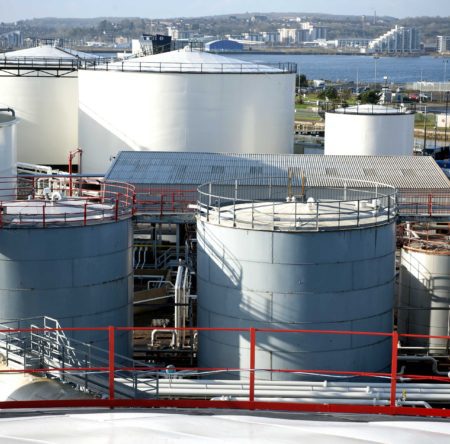
Mabanaft UK managing director Raphael Hüttmann
Mabanaft has announced that Raphael Hüttmann is to take over as UK managing director. The move forms part of a management restructure to provide increased support for development of the company’s UK business interests.
Raphael, currently a board member and a former financial director of Mabanaft, will be taking over from Mark Rolph. He will be relocating to the UK with his family to take up the position.
Going forward the company will continue to focus on traditional trading in physical petroleum products, focusing on the supply chain and biofuels blending.
Raphael said: “I am delighted to be returning to the United Kingdom to lead Mabanaft and look forward to carrying on the excellent work which has been done to date. My remit will be, in spite of the challenging market conditions, to focus on the supply chain and the market opportunities that are continually presenting themselves to us now and in coming years.”
Mark Rolph has taken up a new position as director of public affairs UK for Mabanaft’s parent company, Marquard & Bahls. He said: “It has been an exciting and fulfilling period over the last four years and I could not have managed this without the dedicated support of my team. I am now looking forward to my new role.”
Mark will also continue as chairman of Downstream Fuel Association, where he works to represent the interests of the independent fuel wholesalers and leading retailers.
www.mabanaft.com

Andrew Owens, chairman of Greenergy
Greenergy has announced the purchase of assets at the former Petroplus facility in Teesside from the joint administrators of Petroplus Refining Teesside Ltd, PwC.
The Seal Sands based terminal, previously operated by Petroplus, ceased commercial operations shortly after the company went into administration earlier this year.
Greenergy has been supplying customers in the region from the nearby Vopak terminal, where it has invested in fuel manufacturing, storage and distribution facilities. Andrew Owens, Greenergy chief executive, commented: “The north east is an important hub in our UK fuel infrastructure platform and an area where we have significant sales volume. We will continue to manufacture fuel and supply our customers from the Vopak facility. Once it has been developed, this new site will be integrated into our existing north east system to give additional product and manufacturing capability.
This strategic infrastructure investment follows Greenergy’s recent acquisition of assets at the Coryton refinery in a joint venture with Vopak and Shell.”
The terminal will remain closed for commercial supply over the next few months while development plans for the site are drawn up in cooperation with the relevant authorities.
The plans will include the construction of a new rail head, making Teesside the hub of Greenergy’s rail distribution network. This will allow efficient movement of fuel between Teesside and other UK locations by rail, rather than road or ship.
The existing 20 staff will be retained, and will assist in the development planning.
DCC Energy UK’s acquisition of several heating and transport fuel distribution businesses, including Butler Fuels, has been provisionally cleared by the Competition Commission (CC).
The case was referred by the Office of Fair Trading (OFT) in April, and the final report is expected to be published by the CC by 18 September 2012.
DCC bought the businesses in September 2011 from Rontec LLP, which had previously bought them from Total Downstream UK in June 2011.
In its findings, the CC has provisionally stated that customers supplied by the various businesses would not be adversely affected by a decrease in competition, as a result of the deal.
Chairman of the DCC/Rontec Inquiry Group and CC deputy chairman, Simon Polito, commented: “Central to our decision has been the effect on customers requiring small-scale deliveries across a number of sites, and whether they would be likely to use a number of different suppliers as an alternative to a single supplier with nationwide coverage. We found that these customers are generally quite sophisticated in their purchasing practices. A number of them already multi-source and are also prepared to switch in response to a price increase, so we decided the impact of the merger on these customers would be small.”
http://www.competition-commission.org.uk/
Cameron Forecourt’s new fuelling site installation and web-based management system is helping Malvern Hills District Council keep tighter control on fuel supplies and achieve greater efficiency.
The council’s transport team is already benefitting from more accurate management information on fuel movements, stock levels and vehicle performance after the turnkey package was installed earlier this year.
The system comprises a new three-compartment above ground tank for diesel, gas oil and Ad Blue; three new pumps in a security cabinet, and Cameron’s Eclipse web-based fuel management system.
Cameron Forecourt also installed aTLS2 tank gauge and environmental monitoring system, together with a bund alarm, spill kits, lighting and electrical system.
Danny Healey, transport and logistics manager, explained: “The old installation presented a risk that we might have a leak at some stage and lose fuel, together with the potential detrimental effect on the environment. The capacity of just 5,000 litres of diesel meant we had a maximum of one week’s supply on site at any one time, which made us vulnerable to any industrial action or other disruption to supplies.”
The new tank has a 15,000 litre diesel capacity and 2,000 each for gas oil and Ad Blue.
Using the system to monitor vehicle performance, adaptations have been made to increase fuel efficiency. Danny explained: “We have made changes which include the introduction of magnetic devices to the fuel supply on the vehicles which we hope will increase efficiency by 10-12 per cent.”
The link to the monitoring system and safety alarm means the council are in a position to act immediately in the event of a leak or spillage.
www.cameron-forecourt.co.uk

Greenergy, which supplies almost one quarter of the UK’s road fuels, reported an 82 per cent rise in profit due to cheaper feedstock and increased sales amid a growing market share.
Profits in the year ended April 2012 climbed to £25.3m versus £13.9m a year earlier, according to an annual report. Sales increased to 10.9 billion litres of fuel from 9.9 billion litres, increasing the company’s UK market share to 23.2 per cent.
Greenergy mainly uses naphtha as feedstock in petrol, which is trading close to the lowest price in almost seven years.
“This year, the price of naphtha fell relative to petrol, making it a cheaper component than at any time in the past five years,” the report said. “The outlook for the next twelve months is for relatively cheap naphtha to continue to support our petrol manufacturing margins.”
Andrew Owens, Greenergy’s CEO, said: “Our petrol manufacturing margins were significantly stronger this period than the previous year due to lower raw material costs.”
Greenergy has agreed to buy the Coryton refinery, with Shell UK and Vopak, and may make an initial public offering if additional capital is required for further opportunities.
Greenergy is number 3 in the Sunday Times Top Track 100 of British private companies with the biggest sales.
An international search for a new fuel marker to help in the fight against diesel fraud has been announced by revenue authorities in the UK and Ireland.
Millions of pounds in revenue are lost each year through fuel laundering – the removal of the chemical markers from low duty diesel to sell it on as road fuel.
Working in partnership, HM Revenue & Customs (HMRC) in the UK and the Revenue Commissioners in Ireland are seeking submissions aimed at finding a replacement for the current fiscal fuel markers.
Andy Wiggins, oils policy team leader at HMRC, said: “Although the UK’s current fuel marker is actually one of the better quality markers in use, we are not complacent and appreciate the need to keep one step ahead of fuel launderers.
“Consequently the search for an even more robust marker capable of foiling 21st Century fuel launderers is essential to ensure that opportunities for fraudsters attempting to exploit fuel supplies are reduced and illicit fuel can be detected.”
Revenue Commissioner Liam Irwin said: “Fuel laundering and trading in illicit fuel represents a significant threat to the Exchequer and hurts legitimate businesses. We are determined to take every action necessary to stamp out this form of criminality.”
The joint invitation to make submissions can be found here
Alex Ward
GB Oils has appointed Alex Ward as London regional manager. The area has been recently established as a new operating region to better serve customers in the capital.
As part of his new role, Alex will be responsible for leading the business in London, including the Pace Fuelcare barges on the River Thames. His primary objective will be to stimulate organic growth and elevate the Pace brand to become the first choice for customers.
Alex has worked for the company for 12 months, previously as regional manager for GB Oils in the South East.
He said: “As well as providing competitive pricing and continuous improvements to services, my main aim is to ensure we continue to deliver exceptional standards of customer service.”
Simon Willis, general manager at GB Oils, added: “We have no doubt that he will be a fantastic addition to the team and will help deliver our ambitious plans for this new region.”
Leading oil equipment manufacturers have urged the government to include bioliquids in the Renewable Heat Incentive (RHI).
In a letter to the right honourable Ed Davey MP, the secretary of state for energy and climate change, the chairman of OFTEC and MD of Riello Burners, Barry Gregory, said excluding bioliquids would encourage existing oil households to “do nothing” to make carbon savings.
The campaign has the backing of a number of oil fired equipment manufacturers including Worcester Bosch, Warmflow, Grant, Watson Fuels, Firebird and Harlequin. The Federation of Petroleum Suppliers (FPS) has also pledged their support.
OFTEC and the FPS have been working with the government since 2008, exploring ways in which a new liquid fuel could help de-carbonise heating. B30K, a new fuel specification with 28% less carbon content than kerosene, was developed as a “drop in” replacement for oil users.
Although B30K was included in the original RHI consultation in February 2010, the fuel has been ignored in recent policy statements.
In the letter Barry Gregory said: “Technologies which are included in the RHI will still be more expensive than conversion to B30K and in many cases cause severe disruption for homeowners.
“We estimate that, if the RHI is granted, bioliquids could be installed in sufficient homes to save two million tonnes of CO2 per annum by 2020.”
Thr price of heating oils rose by 4.1 per cent between Q1 2011 and Q1 2012
Oil production fell by 13 per cent in the first quarter of 2012, when compared to the previous year.
The Department of Energy and Climate Change has published the figures in Energy Trends and Quarterly Energy Prices, publications which give statistics on energy production and consumption.
Overall primary demand for oil products in the first quarter of 2012 was also 1.3 per cent lower than last year.
However, when the figures were seasonally adjusted and temperature corrected, it found that oil consumption rose by 1.4 per cent.
Sales of motor spirit and DERV in the first quarter of 2012 increased by 2.6 per cent and 4.5 percent respectively, compared to the first quarter of 2011. This reflects the increased demand in March, when the UK reacted to a potential tanker drivers strike.
In mid June 2012, a litre of unleaded petrol was on average 132.0 pence per litre, 3.6 pence lower than a year earlier, and 9.7 pence lower than the high reached in April 2012. At the same time, diesel was on average 137.7 pence per litre, 1.9 pence lower than a year earlier, and 10.1 pence below the peak seen in April.
In May, the UK retail price for petrol was ranked fourth highest in the EU and UK diesel prices were the highest in the EU.
In the domestic sector, the price of heating oils rose by 4.1 per cent between Q1 2011 and Q1 2012 and by 3.4 per cent between Q4 2011 and Q1 2012.www.decc.gov.uk
Mitchell and Webber had a successful and enjoyable time at the Royal Cornwall Show, despite the bad weather of an English summer.






